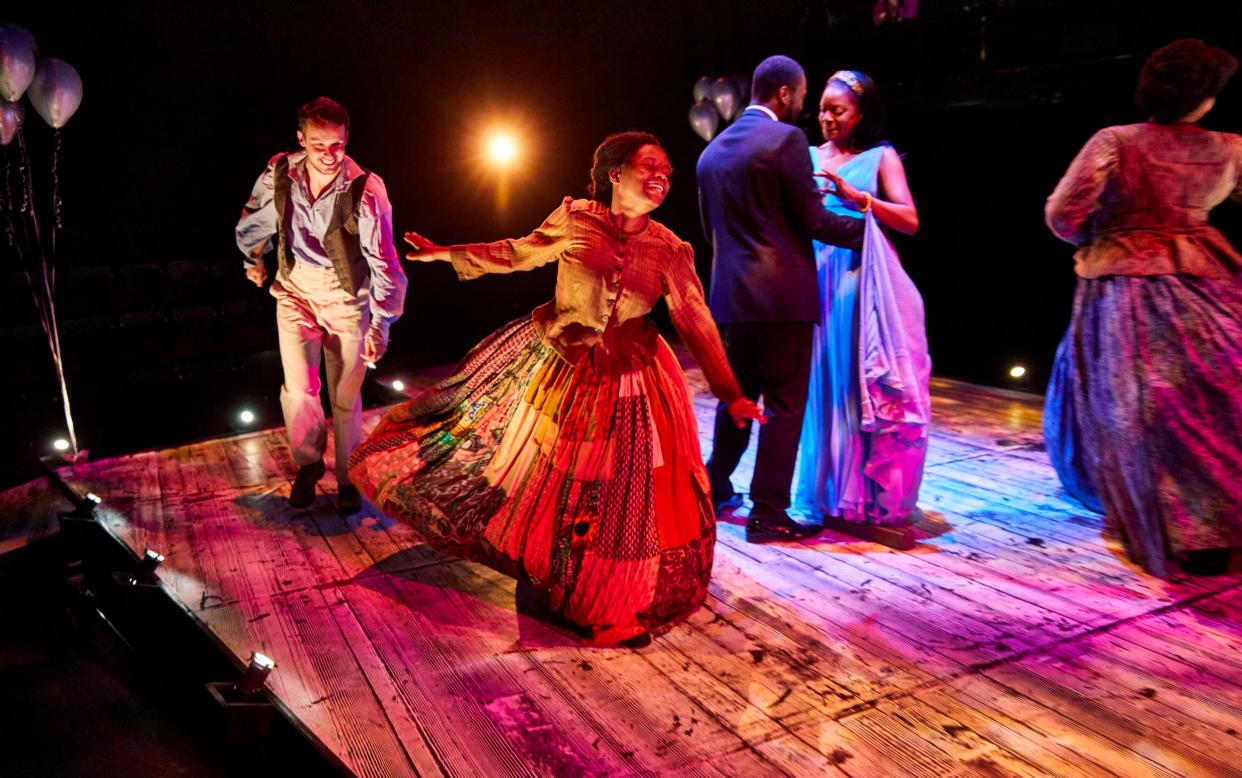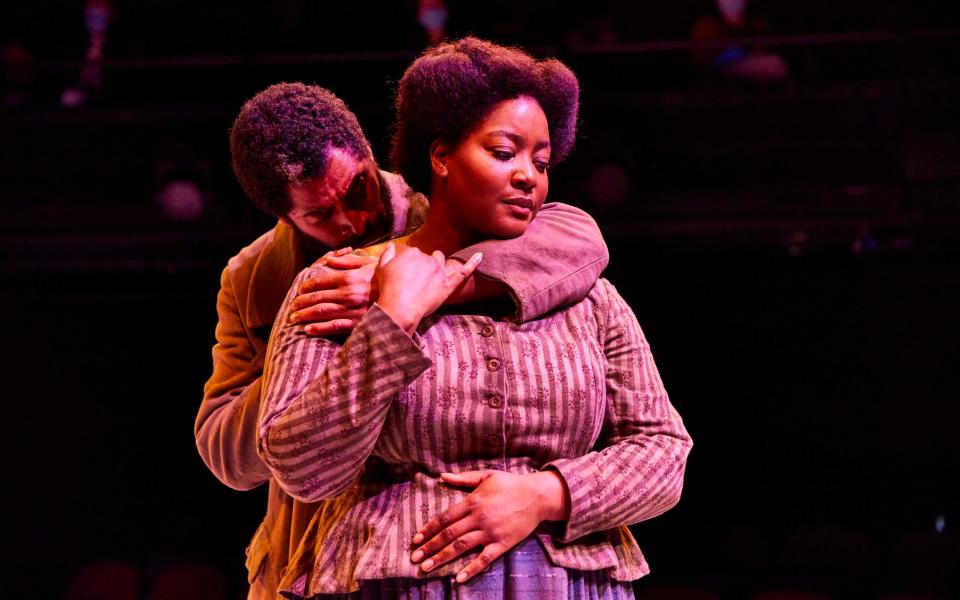Rockets and Blue Lights, review: drama that stirs the feelings but also risks motion-sickness

Born in 1961, Winsome Pinnock was the first black British female playwright to have a work staged at the National. That was in 1995, and the play was Leave Taking, a superb drama about belonging and identity in multi-racial Britain.
The NT milestone was long overdue. The fact that it has since taken 26 years for Pinnock to be welcomed back is shaming; greater exertions should have been made in the interim to bring her into the fold. But that’s nothing compared with the shame felt watching her latest piece, Rockets and Blue Lights, the initial run of which (at the Royal Exchange, Manchester) was halted by the pandemic; it now takes its rightful place on stage again (in a part-reconfigured, in-the-round style Dorfman) after getting an act of salvage airing on BBC Radio 3 last June.
Pinnock – of Jamaican “Windrush” parentage – was inspired by her clapping eyes (long and lingeringly) on Turner’s 1840 painting The Slave Ship, housed in Boston. It’s a work of great beauty evoking – a lot by implication – an act of horrific inhumanity, the jettisoning of slave “cargo” from a ship, thought to allude to the notorious Zong (ship) massacre, which saw more than 130 enslaved Africans thrown overboard in 1781.
A copy (one assumes), unseen by the audience – ie imagined only – is contemplated aboard a replica slave-boat museum by a black actress – Kiza Deen’s Lou – and a teacher (Rochelle Rose’s Essie) supervising a school-trip, circa 2007, the bicentenary year of abolition. For Essie, the subtle artistry, depicting just a few vestiges of the drowning slaves, is an invitation to picture the unthinkable, the crimson sunset reflecting “the carnage underneath”. For Lou, it’s a “monument to white saviourism”.
It’s a personal and professional issue for her; she has starred in an abolition-commemorating film The Ghost Ship, and, as we rewind and drop in on rehearsals, we glean that her slave character (Olu) was sidelined, thereby giving the meat to the white actor playing Turner. Her disillusion with the latter (Paul Bradley’s Roy) for not sticking up for her finds a counterpoint in period-scenes from 1840 which seem to stir – with a life of their own – from the film-rehearsal scenario: Turner heads to sea, in the wake of abolition, but when confronted with the reality that slaving is still illicitly going on, fails to step in to save a black sailor (Karl Collins’ Thomas) he has befriended – a damning indictment.

That’s a lot to be getting on with, but Pinnock – with direction, fleet and fluid, from Miranda Cromwell, and fine ensemble acting across the board – packs in yet more. She boldly shuttles between serio-comic vignettes of the lives of black Londoners in the early 19th century and the little less constrained world, apparently, in which Lou moves. There are defensive white Londoners back in the day, bemoaning their plight, while Roy is working-class, and claims he faced discrimination too. At telling points, the time-periods intersect – a doomed black youth called Billie (Anthony Aje) straddles both eras.
The intellectual through-line is clear enough, and further emphasised by a scene conjuring the voyage of Windrush too: slavery’s legacy is with us, and society’s minimisation of it is bundled up with its damage. Our thought is provoked, at times our feelings too, but the insistently choppy nature of the narrative – however intentional, requiring us to stay alert, not lulled – edges too many characters, Lou included, to the margins, with Turner becoming the default focus.
“Trauma isn’t released until we bear witness to it,” Pinnock is quoted as saying in the programme. That’s profound, but the act of witnessing might be more powerful if she didn’t risk quite so much motion-sickness.
Until 9 Oct. Tickets: 020 7452 3000; nationaltheatre.org.uk
